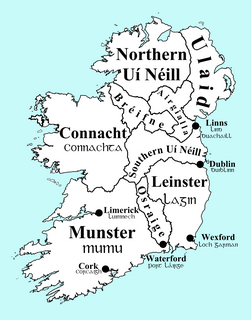Robert Smith or Bob Smith, or similar, may refer to:
MacDonald, Macdonald, and McDonald are surnames of both Irish and Scottish Origin. In the Scottish Gaelic and Irish languages they are patronymic, referring to an ancestor with given name Donald.
Carruthers, sometimes Caruthers, is a Scottish surname and clan, originating from the lands of Carruthers in Dumfriesshire.
Melville is a surname and a given name.
Gardiner is an English surname. Notable people with the surname include:
Gardner is a surname of English, Scottish or Irish origin. Some sources say it is an occupational surname that comes from the word "gardener". Other sources claim that it is derived from the Saxon words gar, meaning "a weapon", and dyn meaning "sound or alarm", combined with the termination er gives the name "Gair-den-er", which means "a warrior", "one who bears arms". Early variants included Gardyner, Gardener, Gardenar, Gardinier, Gardiner, and Gardner; the last two are the most common today.

McGowan is an Irish surname. It is an Anglicization of the Irish Mac Gabhann and Scottish surname Mac Gobhann. Belonging to the Uí Echach Cobo, located in modern-day County Down in the east of Ulster, they produced several over-kings of Ulaid. By the late 12th century, the English had expelled the McGowans to Tír Chonaill in the west of Ulster.
Colin is an English-language masculine given name. It has two distinct origins:
- A diminutive form of "Colle", itself an Old French short form of the name Nicolas (Nicholas). This name, but not the anglicized Gaelic name, is also found in the spelling Collin. This name is formed by the Old French diminutive -in also found in Robin.
- An anglicized form of the Gaelic name Cuilen, Cailean, modern Irish spelling Coileáin, meaning "whelp, cub". The Old Irish word for "whelp", is cuilén. The Scottish Gaelic name is recorded in the spelling Colin from as early as the 14th century. MacCailean was a patronymic used by Clan Campbell, after Cailean Mór.
Duncan is a Scottish and Irish surname. For the etymology of the surname Duncan this web page cites: Dictionary of American Family Names. Another opinion is that the Gaelic Donnchadh is composed of the elements donn, meaning "brown"; and chadh, meaning "chief" or "noble". In some cases when the surname originates in County Sligo, Ireland, it is an Anglicized form of the Irish Gaelic name MacDonough or Mac Donnchadha and Ó Duinnchinn, meaning "descendant of Donncheann". The Gaelic Donncheann is a byname composed of the elements donn, meaning "brown-haired man" or "chieftain"; and ceann, meaning "head". The surname Duncan is represented in Scottish Gaelic as MacDhonnchaidh. The surname also originated from the given name Duncan.
Stephen is a surname of English, Scottish, and German origin. It is a reasonably common surname. The German variant is thought to have originated from the German-speaking world as (Von) Stephan.
Baker is a common surname of Old English (Anglo-Saxon) origin and Scotland where Gaelic was anglicized. From England the surname has spread to neighbouring countries such as Wales, Scotland and Ireland, and also to the English speaking areas of the Americas and Oceania where it is also common. The gaelic form of Baker in Scotland and Ireland is Mac a' Bhacstair. Some people with the surname have used DNA to trace their origins to Celtic countries and specifically to the Baxter sept of the Clan MacMillan in Scotland. It is an occupational name, which originated before the 8th century CE, from the name of the trade, baker. From the Middle English bakere and Old English bæcere, a derivation of bacan, meaning "to dry by heat". The bearer of this name may not only have been a baker of bread. The name was also used for others involved with baking in some way, including the owner of a communal oven in humbler communities. The female form of the name is Baxter, which is seen more in Scotland. The German form of the name is Bäcker.
Elder is a Scottish surname with variant spellings. Its oldest public record was found in 1066 AD in Edinburgh. People with the name Elder or its variants include:
Abernethy is a surname whose origins link to a Scottish clan that descends from Orm de Abernethy, a grandson of Gille Míchéil, Earl of Fife that presumably settled at Abernethy, Perth and Kinross.
Cassidy is a common Irish surname and is sometimes used as a given name. The surname translates to "descendant of Caiside". Variations include: Cassady, Cassiday, Cassedy, Casadei and Cassedey. The family was originally a Munster sept called Uí Chaisín but in the 12th century a branch moved to Devenish Island in County Fermanagh, where they became a medical and poetic family, hereditary physicians to the Maguires.
Pollock is a surname. In some cases, it originates as a locative name derived from Upper Pollock, Renfrewshire, Scotland. An early bearer of a form of this surname is Peter de Pollok, in about 1172–1178. In other cases, the surname is derived from the Middle English personal name *Pollok. An early bearer of a form of this surname is Roger Pollok, in 1332.
Ingram or Ingrams is a surname, from the given name Ingram. Notable people with the surname include:
Forbes is a surname. It derives from the Scottish Clan Forbes. Descendants of the Scottish clan have also been present in Ireland since the 17th century. The name of an unrelated Irish sept, Mac Fhirbhisigh or MacFirbis, was also anglicised as Forbes.
This page is based on this
Wikipedia article Text is available under the
CC BY-SA 4.0 license; additional terms may apply.
Images, videos and audio are available under their respective licenses.
